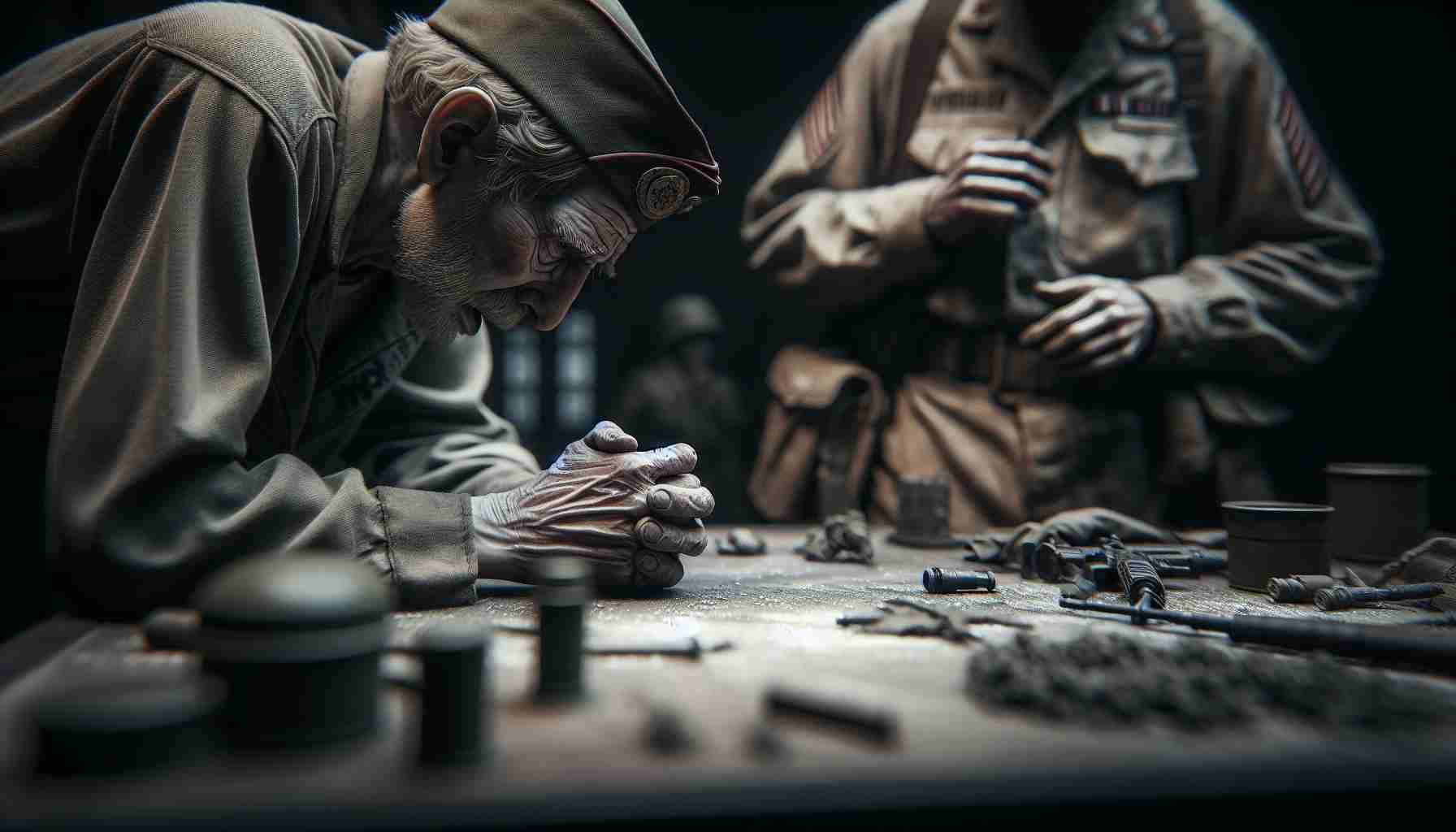A former Green Beret’s explosive act leaves Las Vegas reeling. The tragic event injured seven individuals and has raised numerous questions about mental health among veterans.
Matthew Livelsberger, once honored for his service, is the individual responsible for the detonation of a Tesla Cybertruck outside Trump International Hotel on January 1. This destructive act stemmed from a complex web of personal turmoil and disillusionment with the state of the country. During the investigation, authorities discovered a burned mobile device containing poignant notes that revealed Livelsberger’s motives.
In these notes, Livelsberger expressed a need for mental relief, illustrating his struggle with the ghosts of the past—particularly the haunting memories of fellow servicemen who lost their lives. He voiced deep dissatisfaction with what he perceived to be ineffective leadership in the nation. Despite the violent nature of the act, he framed it not as terrorism, but as a call for awareness regarding the plight of veterans.
The FBI suggests that Livelsberger’s actions may have been influenced by severe post-traumatic stress disorder (PTSD), a challenge faced by many veterans. An agent noted this situation seems to be a heartbreaking case of a decorated veteran who ultimately succumbed to his inner battles. In a separate message, Livelsberger reached out to fellow service members, pointing towards a cry for help that went tragically unheard.
Understanding the Mental Health Crisis Among Veterans: A Call for Action
The Impact of Recent Events on Veterans’ Mental Health
Recent incidents, such as the tragic act carried out by former Green Beret Matthew Livelsberger, have intensified focus on the mental health crisis facing veterans in the United States. With seven individuals injured in Las Vegas due to the detonation of a Tesla Cybertruck outside Trump International Hotel, discussions regarding the mental well-being of returning service members are more critical than ever.
Why Are Veterans at Risk?
Studies show that veterans are disproportionately affected by mental health issues such as PTSD, depression, and anxiety. According to the Department of Veterans Affairs (VA), nearly 20% of veterans who served in Operations Iraqi Freedom or Enduring Freedom experience PTSD. Factors contributing to this crisis include:
– Combat Experience: Exposure to trauma during deployments can lead to lasting psychological effects.
– Transition Challenges: Adjusting to civilian life can be difficult for many veterans, leading to feelings of isolation and anxiety.
– Lack of Support: Mental health resources can be insufficient, and many veterans do not seek help due to stigma or unawareness of available services.
Insights into Matthew Livelsberger’s Case
Livelsberger’s violent act was not just a criminal incident; it was deeply rooted in his personal struggles and mental health challenges. His case underlines the urgency for addressing veteran mental health, as it is often intertwined with their experiences during service. Key insights derived from this tragic event include:
– Awareness and Advocacy: Livelsberger sought to raise awareness of veterans’ issues, illustrating the need for better mental health support systems.
– Community Support: Friends and family are crucial in identifying signs of distress in veterans and encouraging them to seek help.
Features of Effective Veteran Support Programs
Recognizing the complexity of veterans’ mental health needs, effective support programs should include:
1. Comprehensive Treatment Access: Ensuring veterans have access to mental health professionals specialized in trauma and PTSD.
2. Peer Support Networks: Creating avenues for veterans to connect with each other for shared understanding and encouragement.
3. Awareness Campaigns: Increasing public knowledge around veterans’ issues can help reduce stigma and promote understanding.
Current Trends and Innovations in Veteran Mental Health Care
The conversation surrounding veteran mental health is evolving. Recent innovations and trends include:
– Telehealth Services: Increased adoption of teletherapy has made mental health care more accessible to veterans, particularly in rural areas.
– Holistic Approaches: Programs focusing on a combination of therapy, medication, and lifestyle changes (such as exercise and nutrition) are gaining traction.
– Technology Integration: Virtual reality therapy is being tested as a treatment method for PTSD among veterans, providing immersive experiences to help cope with triggers.
Conclusion: A Collective Responsibility
The incident involving Matthew Livelsberger is a poignant reminder of the silent battles fought by many veterans post-service. It urges a collective responsibility to enhance mental health support systems while reducing stigma surrounding seeking help. As society continues to engage with these pressing issues, we must advocate for better resources and understanding for those who have served.
For more information on veterans’ mental health resources and support initiatives, visit the VA official website.












